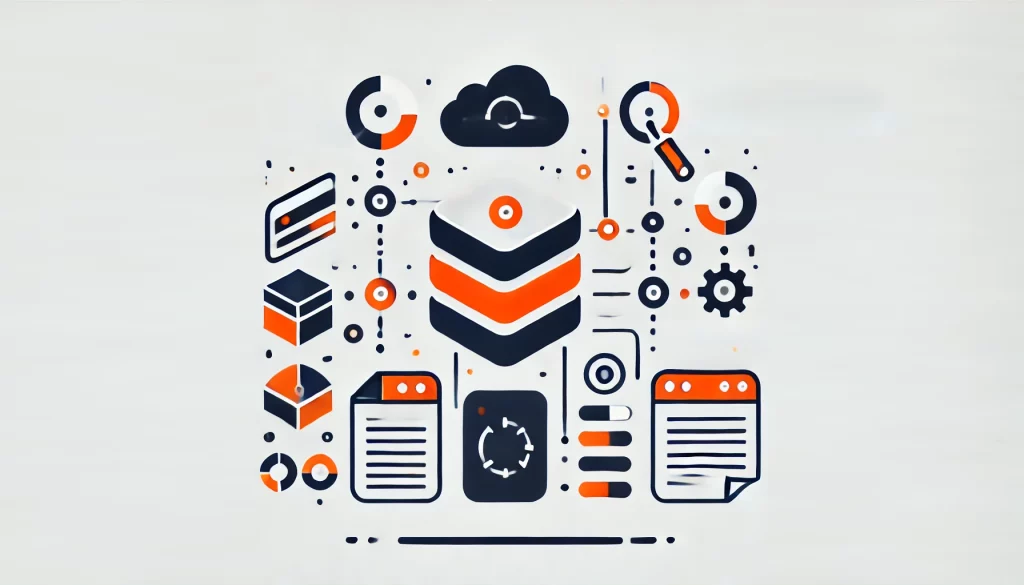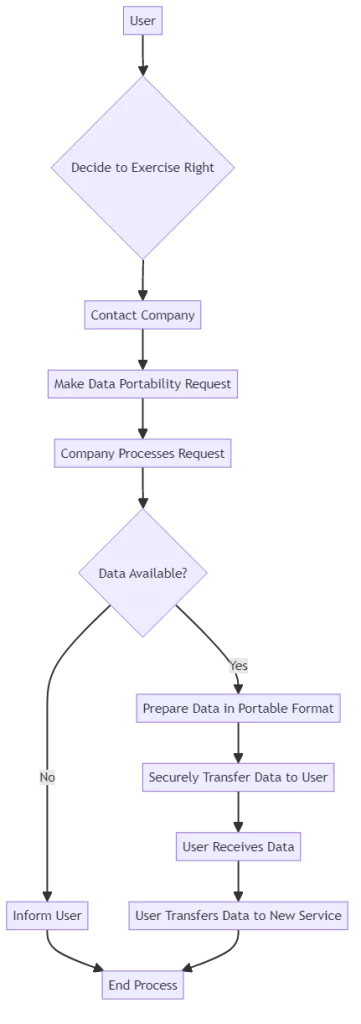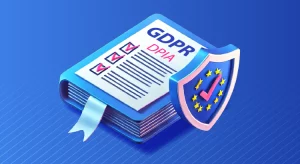
GDPR’s Right to Data Portability

When you share your personal information with a business, you expect them to handle it responsibly. This is where the right to data portability comes into play. A crucial concept empowers individuals to control their personal data, even after sharing it with companies. Let’s dive into what this right means and how it affects both consumers and businesses.
What Is the Right to Data Portability?
The right to data portability allows individuals to obtain and reuse their personal data across different services. It means you can ask a company to give you the information you’ve provided them in a format that’s easy to read and transfer. This right allows you to transfer your data between service providers without losing any information or encountering unnecessary obstacles.
For example, you might want to switch from one social media platform to another. You have the right to data portability. This means you can transfer all your posts, photos, and contacts to a different platform. This way, you don’t have to start from scratch on the new platform.
Data Portability and GDPR
The General Data Protection Regulation has made the right to data portability a legal requirement for businesses operating in the European Union. Under GDPR, individuals have the right to data portability, which gives them more control over their personal information.
GDPR requires companies to provide individuals with their data in a structured, commonly used, and machine-readable format. This means the data should be in a form that’s easy for both humans and computers to understand and process.
When Does the Right to Data Portability Apply?
The right to data portability doesn’t apply to all data a company holds about you. It typically covers:
- Personal data you’ve actively provided to a company
- Data generated from your activities or behavior
- Data processed by automated means
This right typically does not include data that a company has created by analyzing or predicting information you provided. This is important to understand. It means that they do not cover the data they generate from the information you provide under this right.
How to Exercise Your Right to Data Portability

If you want to exercise your right to data portability, you’ll need to request the company holding your data. Most companies have a specific process for handling these requests. Here are some general steps:
- Contact the company’s data protection officer or customer service
- Clearly state that you’re making a data portability request
- Specify what data you want and in what format
- Provide any necessary identification to verify your identity
Companies must respond to your request without undue delay, typically within one month. They should provide the data free of charge, unless the request is excessive or repetitive.
Benefits of Data Portability
The right to data portability offers several benefits to consumers:
Control: It gives you more control over your personal information.
Choice: It makes it easier to switch between service providers.
Innovation: It encourages companies to develop better services to retain customers.
Transparency: It promotes transparency in how companies handle personal data.
Businesses might struggle to follow data portability rules, but doing so can help earn trust and loyalty from customers.
Challenges in Implementing Data Portability
While the right to data portability is beneficial, it does come with challenges. Companies need to ensure they can:
- Identify and extract the relevant data
- Convert the data into a portable format
- Securely transfer the data
- Ensure the privacy of other individuals whose data might be included.
These challenges require companies to invest in robust data management systems and clear processes for handling portability requests.
Data Portability in Action
Let’s consider a practical example of data portability in action. Imagine you’ve been using a fitness tracking app for several years. The app has collected data on your daily steps, heart rate, sleep patterns, and exercise routines. You decide to switch to a new fitness app that offers features more aligned with your current goals.
Thanks to the right to data portability, you can request all your historical fitness data from the old app. The company should provide this data in a common, machine-readable format, such as CSV or JSON.
You can transfer your data to your new fitness app. This will help you monitor your fitness history and trends. You won’t lose any important information.
You can start using your new app immediately. The data transfer is seamless. You can still retain the knowledge from your previous work. It makes fitness apps compete better because they know users can switch easily if a better app appears.
The Future of Data Portability
As technology continues to evolve, the concept of data portability is likely to become even more important. We’re seeing an increasing number of connected devices and services collecting personal data. Consumers need to easily move data between platforms and services to keep control and have choices.
We might have standard formats for personal data, making it simpler to share information between services. People can make personal data stores to store all their data in one place. They can then share this data with different services as needed.
Conclusion
The right to data portability is a powerful tool for individuals in the age of big data. It gives you more control over your personal information and the freedom to choose the services that best meet your needs. While there are challenges in implementing data portability, the benefits for both consumers and businesses are significant.
As a consumer, it’s important to be aware of your rights and to exercise them when necessary. Don’t hesitate to ask companies for your data when you want to switch services or simply want a copy for your records. By using data portability, you can access services and keep control of your personal information.
Remember, your data is valuable, and the right to data portability ensures that you remain in charge of it. Stay informed, exercise your rights, and make the most of the opportunities that data portability offers.
